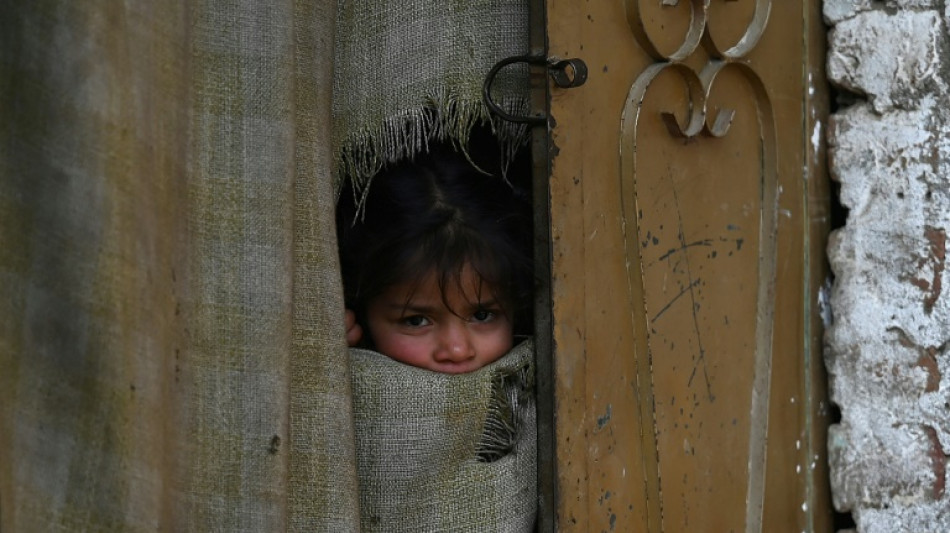
-
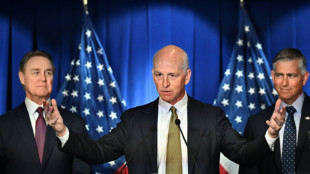 US lawmaker warns of military 'misunderstanding' risk with China
US lawmaker warns of military 'misunderstanding' risk with China
-
Emery seeks Europa League lift with Villa as Forest end long absence

-
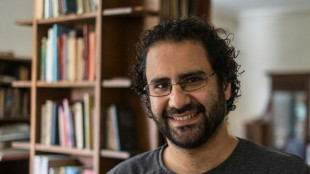 Egypt frees activist Alaa Abdel Fattah after Sisi pardon
Egypt frees activist Alaa Abdel Fattah after Sisi pardon
-
Gibbs, Montgomery doubles as Lions rampage over Ravens

-
 Asian markets struggle as focus turns to US inflation
Asian markets struggle as focus turns to US inflation
-
Schools shut, flights cancelled as Typhoon Ragasa nears Hong Kong
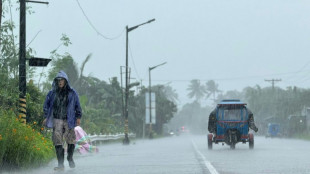
-
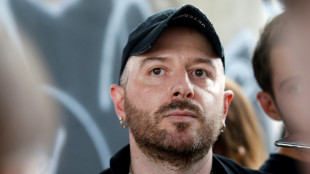 Maverick Georgian designer Demna debuts for Gucci in Milan
Maverick Georgian designer Demna debuts for Gucci in Milan
-
What do some researchers call disinformation? Anything but disinformation
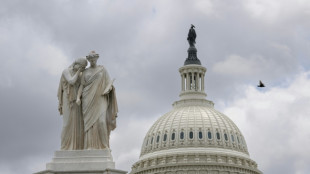
-
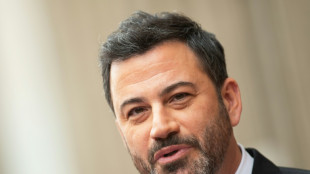 Jimmy Kimmel show to return Tuesday
Jimmy Kimmel show to return Tuesday
-
Unification Church leader arrested in South Korea

-
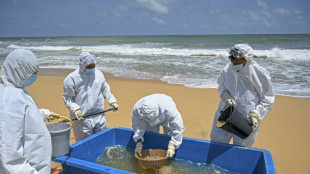 Singapore firm rejects $1bn Sri Lankan pollution damages
Singapore firm rejects $1bn Sri Lankan pollution damages
-
Chile presidential contender vows to deport 'all' undocumented migrants
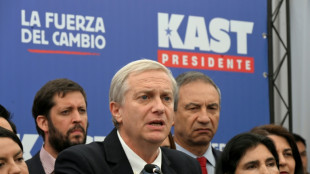
-
 China may strengthen climate role amid US fossil fuel push
China may strengthen climate role amid US fossil fuel push
-
Ryder Cup captains play upon emotions as practice begins

-
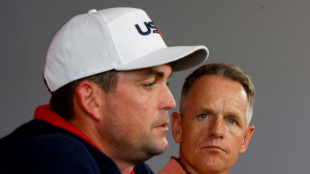 Bradley defends US Ryder Cup player payments as charity boost
Bradley defends US Ryder Cup player payments as charity boost
-
Trump ties autism risk to Tylenol as scientists urge caution
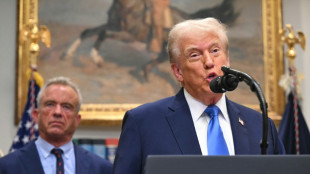
-
 Dembele beats Yamal to Ballon d'Or as Bonmati retains women's award
Dembele beats Yamal to Ballon d'Or as Bonmati retains women's award
-
Strength in Nvidia, Apple helps lift US equities to new records
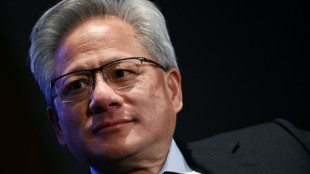
-
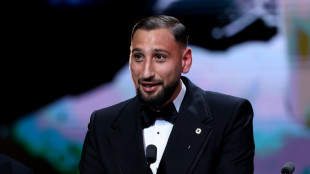 Man City 'keeper Donnarumma says would have stayed at PSG
Man City 'keeper Donnarumma says would have stayed at PSG
-
49ers ace Bosa to miss season after knee injury: reports

-
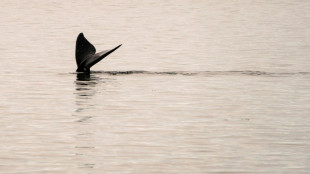 Canada wildlife decline 'most severe' in decades: WWF
Canada wildlife decline 'most severe' in decades: WWF
-
PSG star Dembele wins men's Ballon d'Or

-
 Napoli beat battling Pisa to maintain perfect Serie A start
Napoli beat battling Pisa to maintain perfect Serie A start
-
Spain's Aitana Bonmati wins Women's Ballon d'Or

-
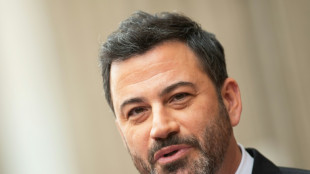 Jimmy Kimmel show to return Tuesday: Disney
Jimmy Kimmel show to return Tuesday: Disney
-
Marseille inflict first defeat of season on PSG in Ligue 1

-
 White House promises US-controlled TikTok algorithm
White House promises US-controlled TikTok algorithm
-
Trump expected to tie autism risk to Tylenol as scientists urge caution
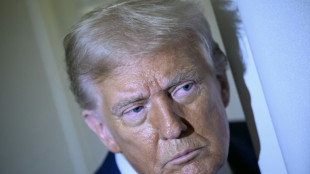
-
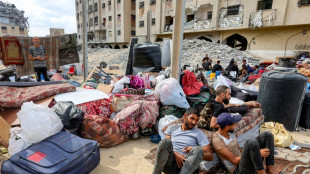 Macron recognizes Palestinian state at landmark UN summit
Macron recognizes Palestinian state at landmark UN summit
-
Hong Kong prepares for 'serious threat' from Super Typhoon Ragasa
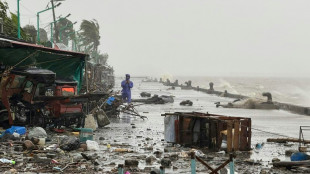
-
 S. Korea court issues arrest warrant for Unification Church leader: Yonhap
S. Korea court issues arrest warrant for Unification Church leader: Yonhap
-
New US Fed governor says rates should be around 'mid-2%'
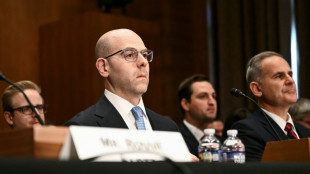
-
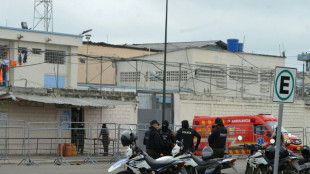 14 killed as rival Ecuadoran inmates fight with guns, explosives
14 killed as rival Ecuadoran inmates fight with guns, explosives
-
Dozens of French towns flout government warning to fly Palestinian flag
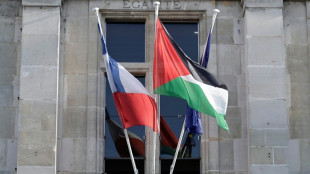
-
 Nvidia to invest up to $100 bn in OpenAI data centers
Nvidia to invest up to $100 bn in OpenAI data centers
-
US mulls economic lifeline for ally Argentina
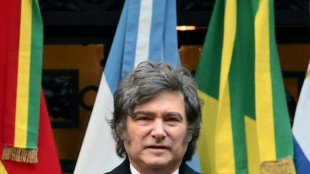
-
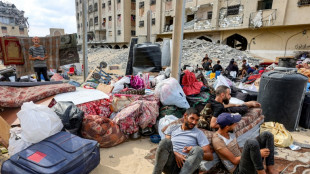 France to recognize Palestinian state at contentious UN
France to recognize Palestinian state at contentious UN
-
Museum or sheikh? World's second largest diamond awaits home

-
 UK charities axe Prince Andrew's ex-wife over Epstein email
UK charities axe Prince Andrew's ex-wife over Epstein email
-
Google fights breakup of ad tech business in US court

-
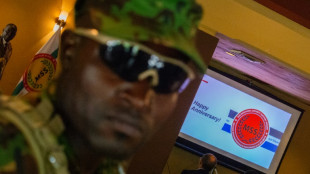 US pleads for new beefed-up multi-national force in Haiti
US pleads for new beefed-up multi-national force in Haiti
-
'Don't repeat our mistakes' - Russian writer Akunin warns against creeping repression
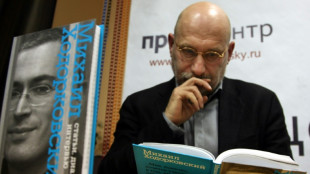
-
 Stocks steady ahead of key US inflation data
Stocks steady ahead of key US inflation data
-
Jews flock to Ukraine for New Year pilgrimage despite travel warning

-
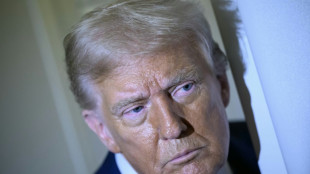 Trump autism 'announcement' expected Monday
Trump autism 'announcement' expected Monday
-
Over 60,000 Europeans died from heat during 2024 summer: study

-
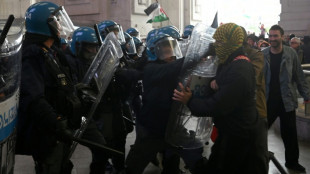 Clashes as tens of thousands join pro-Palestinian demos in Italy
Clashes as tens of thousands join pro-Palestinian demos in Italy
-
UK charity axes Prince Andrew's ex-wife over Epstein email

-
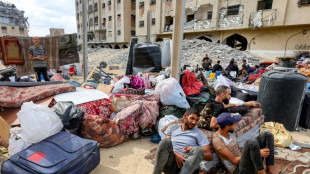 France, others to recognize Palestinian state at UN
France, others to recognize Palestinian state at UN
-
IAEA says Iran nuclear diplomacy at a 'difficult juncture'
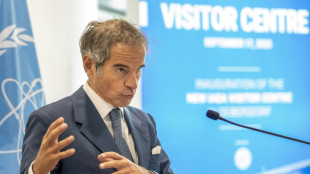

Fighting Taliban and mistrust, Pakistan marks one year polio-free
Bathed in crisp morning light, Sidra Hussain grips a cooler stacked with glistening vials of polio vaccine in northwest Pakistan.
Watching over Hussain and her partner, a policeman unslings his rifle and eyes the horizon.
In concert they begin their task -- going door-to-door on the outskirts of Mardan city, dripping bitter doses of rose-coloured medicine into infants' mouths on the eve of a major milestone for the nation's anti-polio drive.
The last infection of the wild poliovirus was recorded on January 27, 2021, according to officials, and Friday marks the first time in Pakistan's history that a year has passed with no new cases.
To formally eradicate the disease, a nation must be polio-free for three consecutive years -- but even 12 months is a long time in a country where vaccination teams are in the crosshairs of a simmering insurgency.
Since the Taliban takeover of neighbouring Afghanistan, the Pakistan version of the movement has become emboldened and its fighters frequently target polio teams.
"Life or death is in God's hands," Hussain told AFP this week, amid a patchwork of high-walled compounds in Khyber Pakhtunkhwa province.
"We have to come," she said defiantly. "We can't just turn back because it's difficult."
- Thriving in uncertainty -
Nigeria officially eradicated wild polio in 2020, leaving Pakistan and Afghanistan as the only countries where the disease -- which causes crippling paralysis -- is still endemic.
Spread through faeces and saliva, the virus has historically thrived in the blurred borderlands between the South Asian nations, where state infrastructure is weak and the Tehreek-e-Taliban Pakistan (TTP) have carved out a home.
A separate group sharing common heritage with the Afghan Taliban, the TTP was founded in 2007 and once held sway over large swathes of the restive tribal tracts of Pakistan.
In 2014 it was largely ousted by an army offensive, its fighters retreating across the porous border with Afghanistan.
But last year overall militant attacks surged by 56 per cent according to the Pakistan Institute for Conflict and Security Studies, reversing a six-year downward trend.
The largest number of assaults came in August, coinciding with the Taliban takeover of Kabul.
Pakistan's newspapers are regularly peppered with stories of police slain as they guard polio teams -- and just this week a constable was gunned down in Kohat -- 80 kilometres (50 miles) southwest of Mardan.
Pakistani media has reported as many as 70 polio workers killed in militant attacks since 2012 -- mostly in Khyber Pakhtunkhwa.
Still, a TTP spokesman told AFP it "never attacked any polio workers", and that security forces were their target.
"They will be targeted wherever they perform their duties," he said
Mardan deputy commissioner Habib Ullah Arif admits polio teams are "a very soft target", but says the fight to eradicate the disease is entwined with the security threat.
"There is only one concept: we are going to defeat polio, we are going to defeat militancy," he pledged.
- Vaccine scepticism -
Pakistan anti-polio drives have been running since 1994, with up to 260,000 vaccinators staging regular waves of regional inoculation campaigns.
But on the fringes of the country, the teams often face scepticism.
"In certain areas of Pakistan, it was considered as a Western conspiracy," explained Shahzad Baig -- head of the national polio eradication programme.
The theories ranged wildly: polio teams are spies, the vaccines cause infertility, or contain pig fat forbidden by Islam.
The spy theory gained currency with the killing of Osama bin Laden in 2011, whose hideaway in Abbottabad was revealed to the United States -- unwittingly or otherwise -- by a vaccine programme run by a Pakistani doctor.
"It's a complex situation," said Baig. "It's socio-economical, it's political."
The porous border with Afghanistan -- a strategic crutch for the TTP -- can also keep polio circulating.
"For the virus, Pakistan and Afghanistan were one country," said Baig.
In Mardan, 10 teams -- each comprising two women and an armed police guard -- fan out across the city's suburbs as morning turns to afternoon.
The teams chalk dates on the homes they visit and smear children's fingers with indelible ink to mark those already inoculated.
On Monday they delivered dozens more doses to add to the nationwide tally.
"We have the fear in mind, but we have to be active to serve our nation," said polio worker Zeb-un-Nissa.
"We have to eradicate this disease."
J.Oliveira--AMWN